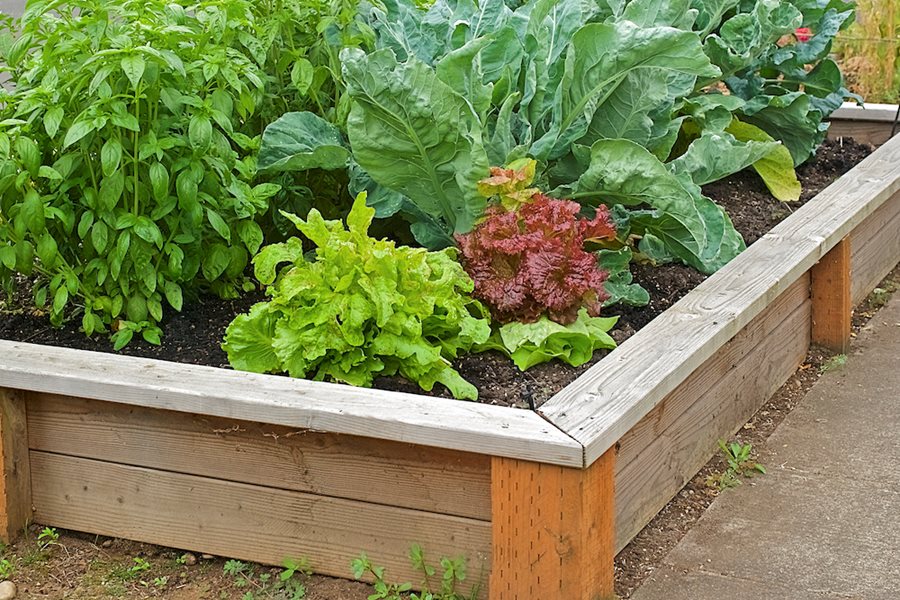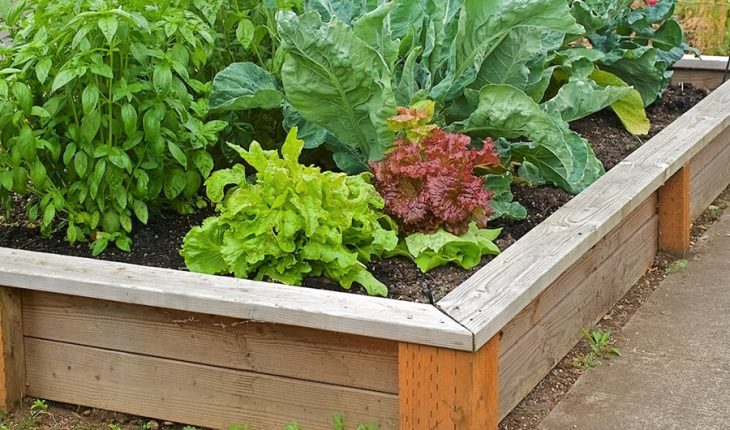Over the past couple of years, the ongoing pandemic has caused many to give up some of their favorite activities and spend far more time at home. Some have cut back on exercise and put on unwanted pounds.

Perhaps you’ve decided it’s time to reverse the trend by becoming more active, eating better, reducing stress, and living a healthier lifestyle. The good news is that planting a vegetable garden can help you and your family achieve all of that and more.
Planting and maintaining a garden is great exercise
How much exercise you get from vegetable gardening depends on how you decide to cultivate and maintain your garden. Even a small plot can give you a good workout if you do everything by hand. Rather than using a gas or electric tiller or cultivator to prepare your garden area for planting, you could choose to use a hoe instead. You can carry in your organic mulch and soil mix amendments by the bucket and bag rather than using a wheelbarrow. As you plant, weed, and harvest your garden you’ll be doing a considerable amount of squatting, twisting, and bending. Gardening will also allow you to get your daily dose of vitamin D from the sunlight.
Gardening reduces stress and promotes mental health
Working outdoors in your garden gives you an opportunity to calm down and de-stress. Take a look around. Observe the pollinators as they work to ensure that you have a bountiful harvest. Enjoy the sunshine, breeze, and birds. Your biggest worries will be ensuring that the huge tomato ripening on the vine is getting the support it needs and that the weeds aren’t encroaching too much on your lettuce bed. You’ll find that gardening allows you to temporarily forget about the stressful things in life that you can’t do anything about, anyway.
Get the family involved
If you have a family, get them involved so they can share in the health benefits of vegetable gardening. While it may be difficult at first to pry the kids away from social media and video games, they will derive the same benefits from gardening as you do. Additionally, studies have shown that kids are more interested in eating what they’ve helped to grow. That’s great considering that home-grown, vine-ripened vegetables are more nutritious than their store-bought counterparts.
If you have a spouse or significant other, you may be interested to know that, per The Old Farmer’s Almanac, surveys indicate couples who garden together tend to stay together longer than couples who don’t.
Being in control of what you eat
Knowing where your food comes from and that you aren’t consuming any potentially harmful pesticides or other chemicals means you have one less thing to stress about when it comes to your health. You need not be concerned as to whether the fresh salad that came from your garden contains recalled romaine.
You may also want to get into canning, blanching, pickling, and drying the fruits and vegetables of your labor. This can give you a safe and healthy long-term food source unaffected by supply-chain issues or other disruptive events, and remove one more item from your list of things to worry about.
Save money by growing your own
Stressing about money isn’t healthy, but it’s difficult to find someone who doesn’t do it. Prices of produce have been on the rise, adding to the cost of feeding your family. The good news is that growing your own vegetables not only eliminates concerns about supply-chain disruptions and empty shelves, but it can also save you a significant amount of money. You will not need to pay inflated fuel prices to go to the store in the hope that you’ll be able to procure the tomatoes you need at a higher price than you paid last week. You can simply go shopping in the produce section of your yard and harvest what you need from a plant you purchased for only a couple of dollars.
Home-grown is tastier, thus you eat more and get healthier
In a typical scenario, a commercial farming operation uses synthetic fertilizers to ensure rapid and uniform growth of fruits and vegetables that are then harvested long before their peak ripeness. This is done to ensure that they don’t spoil before reaching the produce counter. Compare this to the backyard garden alternative. Your fruits and vegetables ripen on the plant. When you pick something and eat it at peak ripeness, the natural sugars make it taste better. Natural sugars in produce picked early and eaten hours, days, or weeks later have turned to starch. Take sweet corn for example. It looses 50% of its sweetness within 12 hours of being harvested. And if you’ve ever compared the taste of a vine-ripened tomato to its store-bought counterpart, you know there really is no comparison.
If what you grow tastes better, you and your family will most likely eat more of it. Some even say just the satisfaction of knowing you grew something, yourself, makes it tastier. Eating more fruits and vegetables, especially if they don’t contain chemicals or pesticides, leads to better health.
Looking ahead
When you look through the window and see the garden you created and all that you’ve done with a bit of healthy hard work, you’ll have a sense of accomplishment. This will be magnified if that garden is feeding both you and your family and if your family gets involved in the process. When you go outside to do some weeding or deadheading or to gather some fresh veggies for dinner, your stress will melt away. Just the fact that you are up and moving and getting some exercise will help you live a longer and healthier life.
Getting started
If you aren’t growing your own vegetables and fruits, perhaps you should be. Whether you have acreage to spare or your space is limited to a balcony that can only accommodate containers, you can grow your own fruits and vegetables and experience the mental and physical health benefits associated with doing so. You’ll also find that what you grow is much tastier and less expensive than what you buy.
Getting started is easy. Go online and do some research into planting seasons and what grows best in your area. Check with the experts at your county’s agricultural extension office. They are known to have free, helpful publications available relating to what to grow, how best to grow it, and when to plant. They may even have classes you can attend. If you have a local garden center in your area, you may very well find that you can get some helpful advice there along with all of your vegetable gardening supplies including seeds and plants. What are you waiting for?

